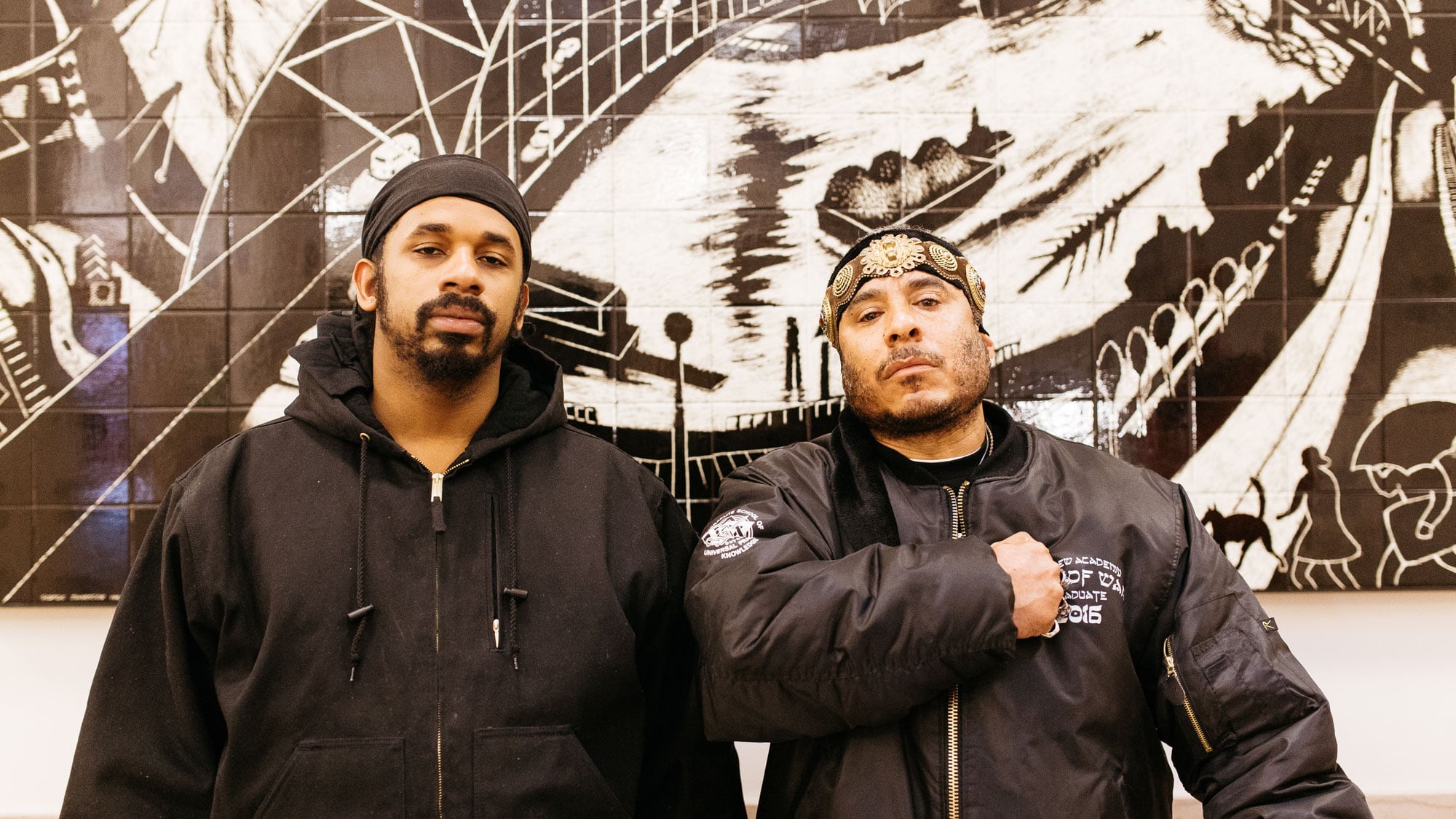The McCoy Village community room on Northeast Martin Luther King Jr. Boulevard is an earth-toned space that hosts community meetings and the affordable housing complex's holiday parties.
The Southern Poverty Law Center, the nation's leading watchdog of hate groups, however, claims this room is also a site of hate activity.
The room doesn't host neo-Nazis or the Klan. It's a place where black separatists come to gather, in a group called the Israelite Church of God in Jesus Christ.
In fact, the SPLC says three out of the four hate groups operating in Portland are black. The claim was first made last year in a "hate map" published by the center every February that lists the 917 most prominent hate groups in America.
"That's ludicrous," says Jo Ann Hardesty, head of Portland's NAACP and a candidate for the City Council. "I challenge this premise, that 75 percent of the hate groups operating in Portland are black. Just do the math."
The center's assertion seems especially bizarre in a city that has seen high-profile acts of racial hate by white men—from an unhinged man stabbing three people on a MAX train to a man yelling racial slurs at a Muslim couple while trying to hit their vehicle with his car.
Has the SPLC lost its mind?
"We stand behind the listing," says Heidi Beirich, director of the center's Intelligence Project. "We call out hate where we see it, and we aren't going to give a pass to anti-Semitism or anti-white thinking in these groups."
As the SPLC prepares to publish a new hate map next month, observers of hate speech in Portland argue that the watchdog organization is missing the obvious: Black and white hate groups don't operate on a level playing field.
"Organizations of color do not have the power to enact their vision on this society," says Walidah Imarisha, an author and Oregon black history scholar. "White supremacist organizations do."
The four groups the SPLC lists in Portland are the Israelite Church, the Black Riders Liberation Party, the Israelite School of Universal Practical Knowledge and a white-run record label called Soleilmoon Recordings, which this newspaper covered last year.
According to the center, the groups all allegedly preach hate against what the SPLC calls "immutable characteristics"—skin color, gender, sexual orientation and/or faith.
But the groups appear to have little leadership in Portland, and few or no programs on the ground.

WW reached out to the three black separatist groups. Only one, the Israelite School, agreed to an interview.
Natazar Ha Ahsh of the ISUPK came down from Seattle to talk to WW at the Multnomah County Central Library before Christmas.
He brought the group's only Portlander: a new "soldier" named David. The school also has a soldier apiece in Salem and Eugene, Ha Ahsh says.
He says the ISUPK merely promotes self-defense and seeks a separate reality for black people, not hate.
"We're a love group, so to speak; we love our nation," Ha Ahsh says. "But the nation that opposes us loving each other will label us a hate group."
Ha Ahsh could not name a single, operational ISUPK program in Portland.
"We're not going to take up arms against anybody," says Ha Ahsh, who works a full-time job, owns a home and has a family—under a different name. "We're here to gather our people."
Read an extended interview with Ha Ahsh here.
But the core of his message is the idea that the United States should return to racially separate societies.
"The only way to make change is to actually separate," Ha Ahsh says. "What do you think black people should do in America?"

The Black Riders Liberation Party, meanwhile, evolved from the New Black Panther Party, the SPLC says. The party's YouTube videos include weaponry, calls to arms and anti-police rhetoric.
The Portland chapter of the Israelite Church hosts an online radio show featuring a "Bishop Yawasapga," whose podcasts target white people, Jews, the gay community and women. The group did not respond to emails or phone calls.
Staff at McCoy Village was surprised to hear a listed hate group was using its community room.
"They're not affiliated with us at all," says Ashley Fuller, a Cascade Property Management staffer.

The SPLC's list has real influence, and a track record of identifying and taking action against hate groups. Black separatists in Portland, however, constitute little or no threat, local experts say. (Portland is 6 percent black, and police numbers show four of 34 suspects in bias crimes since 2015 were black.)
"They don't actually do anything about [their beliefs]," says Randy Blazak, director of the Hate Crimes Research Network. "They basically meet in a little room off of MLK and talk about the white devil and these conspiracy theories and then they go home."
Imarisha looks at the hate map and sees a glaring absence.
"It's not just Portland," she says. "Even if you look at the rest of Oregon, it is not reflective of the number, the amount of white supremacist organizing that is happening. Why is that?"
WW asked the SPLC to explain its seemingly skewed list. Beirich responded that the center doesn't list prison gangs that are primarily "criminal enterprises," such as the European Kindred—which was linked to the killing of a black teenager in Gresham in 2016.
Rather, it tracks "propagandists" regardless of skin color, even when they have little impact.
"It's important for the public to know about [black separatist] groups and what they believe," she says. "These are terrible ideas that really should be thrown in the ash bin of history."
